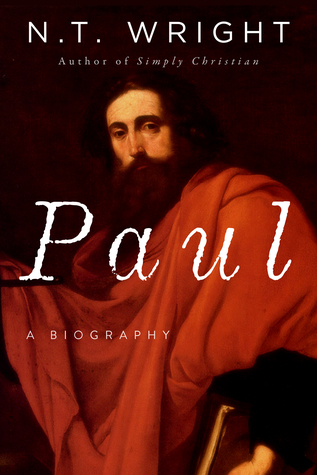More on this book
Community
Kindle Notes & Highlights
This is the heart of Paul’s famous “doctrine of justification,” which is so important in Galatians, Philippians, and Romans,
probably find one. It may not be totally misleading. But we will miss what Paul’s “justification” is really all about. It isn’t about a moralistic framework in which the only question that matters is whether we humans
have behaved ourselves and so amassed a store of merit (“righteousness”) and, if not, where we can find such a store, amassed by someone else on our behalf. It is about the vocational framework in which humans are called to reflect God’s image in the world and about the rescue operation whereby God has, through Jesus, set humans free to do exactly that.
For Paul, therefore, questions of “sin” and “salvation” are vital, but they function within a worldview different from the one Western Christians have normally assumed. For Paul, as for all devo...
This highlight has been truncated due to consecutive passage length restrictions.
the resources he could find, including ideas and phrases from contemporary philosophy. “We take every thought prisoner,” he writes, “and make it obey the Messiah.”9 This, I submit, is part of the reason for the remarkable success of his work.
Western meaning, framed as that has been by a moralistic vision (“Have I done all the things God wants me to do?”) linked to a platonic eschatology (“How can I go to heaven?”).
The “zeal” of Phinehas, the “zeal” of Saul of Tarsus, had been translated into a zeal for the gospel.
angelic power operating without human agency. Paul believed that when grace was at work, the human agents themselves were regularly called upon to work hard as a result, not least in prayer. He says this of himself.14
The Creator works in a thousand ways, but one central way is through people—people who think, who pray, who make difficult decisions, who work hard, especially in prayer. That is part of what it
means to be image...
This highlight has been truncated due to consecutive passage length restrictions.
I have suggested that the only reason he doesn’t say more at the Jerusalem Conference is because Barnabas would have persuaded him to hold back.
He is the kind of man you want on your side in a debate but who may just alienate more sensitive souls.
With all this, there is something disarming about Paul’s vulnerable side, which explains why, despite his relentless and in-your-face energy, people loved him, wanted to work with him, and wept when he left.
But it is no accident that many of the acknowledged great moments in church history—think of Augustine, Luther, Barth—have come about through fresh engagement with Paul’s work.
Paul had insisted that what mattered was not just what you thought but how you thought.
And, once again against the common perceptions of our age, the fresh evaluation of the role of women, though it came ultimately from Jesus himself, was mediated not least through Paul—the Paul who listed several women among his colleagues and fellow workers (including one “apostle”), who saw early on that in the Messiah’s family there was ultimately no “male and female,” and who entrusted Phoebe with the responsibility of delivering and almost certainly expounding the letter to the Romans.
He died long before most of them began to sprout, but when they did, a community came into being that challenged the ancient world with a fresh vision and possibility.
The vision was of a society in which each worked for all and all for each.
koinōnia, a “fellowship.” A family. As the historical
The Stoics, the Epicureans, and the up-and-coming Middle Platonists had serious, articulate, and in many ways attractive spokespeople. With hindsight, however, Paul’s Jesus-focused vision of the One God, creator of all, was able to take on all these philosophies and beat them at their own game.
Theology is the backbone of a healthy church. The body still needs limbs and organs, joints and tissue. Paul, with his own image of the Messiah’s body, would have been the first to insist on that.
Whether he faced death after the two years of his house arrest at the end of Acts or whether he made subsequent journeys before a second arrest and a final trial,
Shema,


